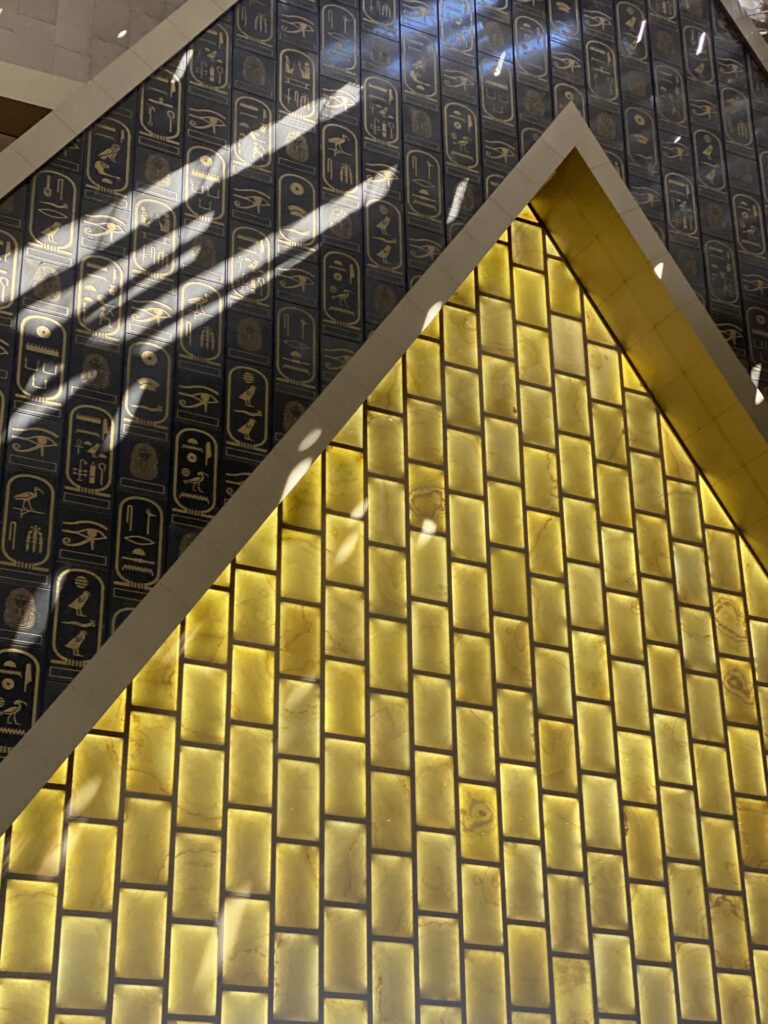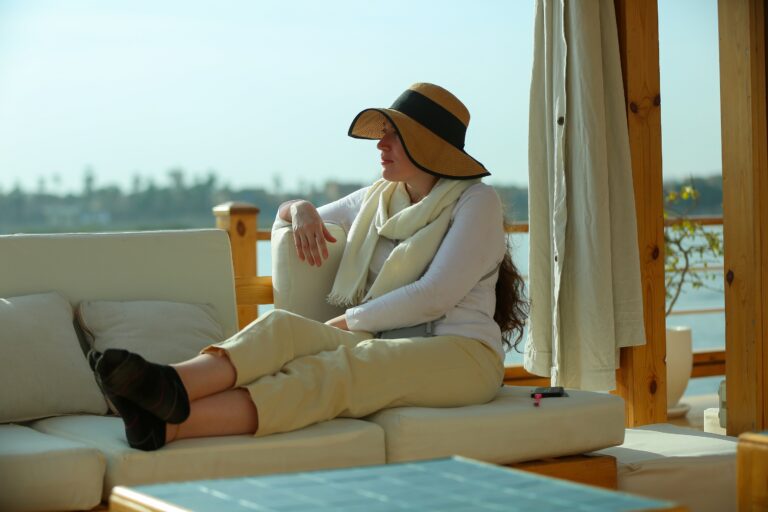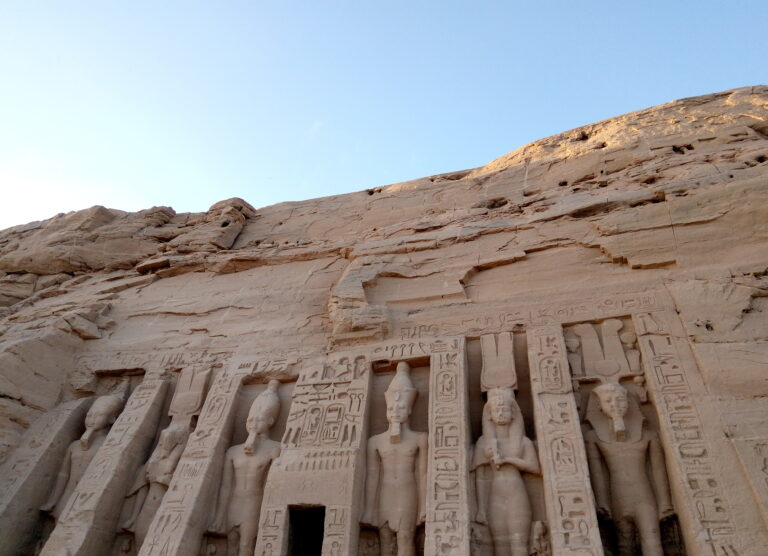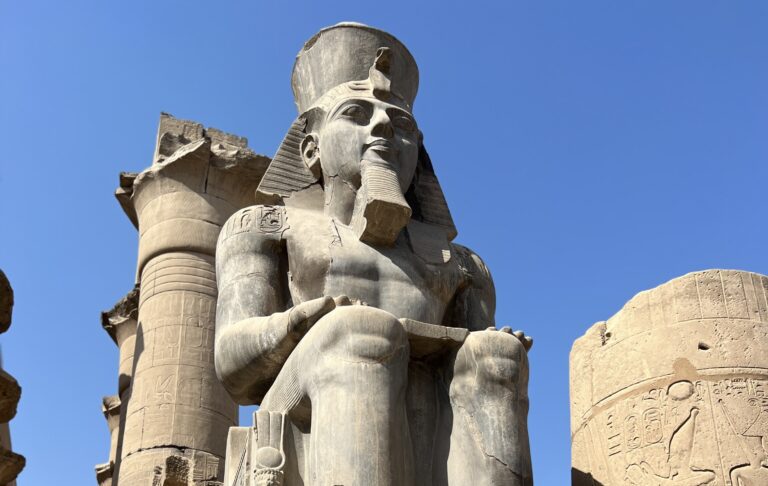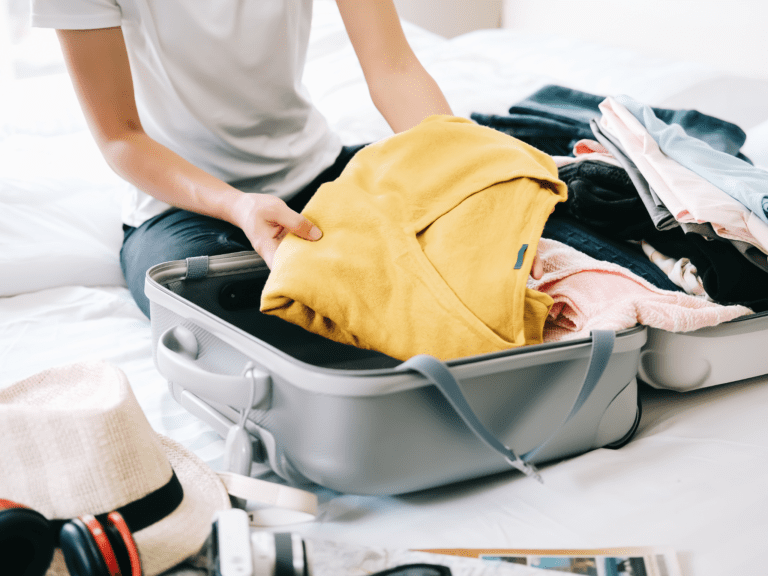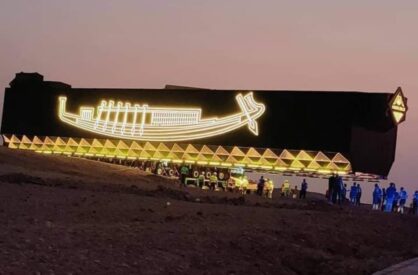Essential to do before you travel
COVID 19.
Covid-19: currently no entry restrictions for Egypt
Covid19 entry restrictions for Egypt were removed from 17th June, 2022. All arrivals no longer need to complete any tests or show proof of vaccination.
However, please ensure you check the current government regulations for the country you will return to or visit after your time in Egypt, as regulations in each country continue to change and you want to ensure you can complete your travel meeting all requirements.
Visas
Entry Visa requirements vary depending on your nationality. Some nationalities may need to apply at their local Egyptian Embassy or Consulate General for a pre-entry tourist visa.
For many visitors a tourist Visa can be purchased in advance online on the Egyptian Government Visa website https://www.visa2egypt.gov.eg (see the page FAQ – Who requires a visa?) or on arrival at the airport when you enter Egypt.
Tourist visas are available on arrival for nationals of all Western European countries, North American countries, all South American countries (including Panama) UK, USA, Australia, New Zealand, Japan, Korea, Hong Kong/Japan/Macau/Malaysia or Singapore.
At Cairo airport the process takes about 20 minutes and costs US$25.The visa is valid for 30 days, it can be extended for an additional cost of about US$90.
Other nationalities must obtain their visa before leaving their country. Visas can be obtained at any Egyptian embassy or consulate, but allow enough time before your tour for your visa to be processed. The embassy or consulate in your country should be able to give you an estimate of the processing time.
SHOPPING POLICY
Our guides are not allowed to get commission from shop-owners, and our payment to guides is good so it does not require that they seek extra money from forced shopping. However, should you wish to shop, our guides will take you to some good, reliable and properly priced shops.
Our policy is to be honest and treat our customers as a guest not as a client.
Why tip?
Tipping is considered to be part of the income of the person serving you, and is expected in this culture. However, it should only be given if the service is of an excellent standard. Tipping encourages the guides ,drivers, hotel staff, waiters to always do their best, and you personally giving them the tip will encourage them to continue serving you well. Tips are best given in an envelope with a short word of thanks.
Tipping is not compulsory
Tours tippings guidelines (suggestions – not compulsory)
Tipping guidelines in EGP per service providers (in case you want to handle the tipping yourself) –
Tipping in Egyptian pounds EGP (these amounts are per group not per person). The Minimum amount is for a small group (1-2 people) and the Max amount for a larger group.
* Driver 150-250 for a full day
* Driver 100-200 for a half day or airport transfer.
* Bellman in hotel 30 when you check in and 30 when you check out
* Dahabiya Cruise, Regular Nile Cruise, Felucca per person (as in the list attached at the end of the doc).
* In restaurants 5-10% of the meal cost (about 50-150 )
* Tour guide about 300-400 per full day (7-8 hours)
* Motor boats or Felucca rides 50 – 100.
* Airports/transfers/ operator/ assists 75 – 100
* Camel / Carriage driver 50 – 100.
EX: If you have 4 full days tours and you are in a private tour in a group of 4 people, your average tipping is as following:
(Guide = 300x 4 )+ (Driver = 200×4) = EGP 2000 (about USD 125 as total) for the guide and driver.
Note: Dahabiya cruise tipping guidelines at the end of the doc
Before you travel
Make sure your routine vaccinations are up to date.
Get travel insurance, essential for medical emergencies, and make sure it covers the COVID. Also check any medications you need are LEGAL in Egypt
Email to yourself scans / photographs of your important documents – passport, including the stamped Visa page, travel insurance, both sides of your debit and credit cards. This makes it easy for you to have copies to arrange replacement, if the originals are lost or damaged. Also email yourself a list of your important phone numbers in case of phone loss or damage.
While you will be with your guide for much of the time, there will be times you are on your own. Don’t expect all Egyptians to understand your language. Instead, learn some useful phrases. Even if you have only a few basic phrases, people will appreciate this and make an effort to communicate or help you.
About Egypt, The Country.
Egyptians call the country Misr. It is a Republic and has 27 administrative regions, or governorates.
The Egyptian flag consists of three equal horizontal bands of red (top), white, and black, with the national emblem (A Golden Eagle of Saladin with a shield on its chest above a scroll bearing the name of the country in Arabic) centred in the white band. These band colours are derived from the Arab Liberation flag; black symbolises the eras of oppression, underdevelopment and colonialism, red the bloody struggle to overcome this, or glory, and white is for purity or a bright future.
Geography
Egypt is in North Africa, but because of The Sinai Peninsula we also are part of Southwest Asia. Egypt covers approximately 1,001,500 square kilometres (386,660 sq mi), so Egypt is about the same size as all of Central America, twice the size of Spain, four times the size of the United Kingdom, and the combined size of the US states of Texas and California.
Egypt’s coastlines are The Mediterranean Sea and The Red Sea, extending more than 2,900 kilometres. To its West is Libya, to the East the Gaza Strip and Israel, and in the South, Sudan.
Egypt is predominantly desert, with less than 4% of total land area cultivated and permanently settled. The major areas are the Nile River Valley and Delta, Western and Eastern Deserts, and The Sinai Peninsula. The Nile valley and Delta support most of the population, The deserts include many oases which contribute to agricultural production.
The Western desert is more mountainous, and the Sinai Peninsula features a mountain range along the Red Sea coast that includes Egypt’s highest mountain, Jabal Katrinah (Mount Catherine), 2,642 m above sea-level. In both deserts, winds create sand dunes that may reach more than 100 feet (30 m) high.
Egypt’s important role in geopolitics stems from its strategic position: As a transcontinental nation, it possesses a land bridge (the Isthmus of Suez) between Africa and Asia, traversed by a navigable waterway (The Suez Canal) that connects the Mediterranean Sea with the Indian Ocean by way of the Red Sea.
The two largest cities are Cairo, population of about 22 million and Alexandria, about 20 million.
Weather.
Egypt has a desert climate with hot, dry summers and moderate winters.
Summer temperatures average between 26.7 and 45°C in summer in Upper Egypt, up to 43 ° on the Red Sea coast. Winter temperatures average between 13 and 21 °C. Wind lowers temperatures near the Mediterranean coast. In spring the Khamaseen wind blows from the South, bringing sand and dust and sometimes raising the desert temperature to 38 °C.
Most rain falls in the winter months. South of Cairo, rainfall averages only around 2 to 5 mm per year and at intervals of many years. On the Northern coast rainfall can reach 410 mm, with most rain between October and March. Snow falls in the Sinai mountains and some of the Northern Coastal cities such as Damietta, with rare falls in Alexandria. Desert nights are cold, dropping below zero in winter.
Detailed weather forecasts to help plan your packing www.Weather.com
People, religion, language and culture.
Population is estimated at 100 million but growing rapidly, about half live in urban areas, including the major cities of Cairo, Alexandria and others along the Nile. Egypt has been continuously inhabited since the 10th millennium BCE and its history of trade and political takeovers has ensured a rich mixture of genetic and cultural traditions.
Egypt is predominantly Sunni Muslim, an estimated 90%, with 9% Coptic Christian and 1% other denominations.
All Egyptians speak Arabic, and a small percentage speak other languages with the Arabic, such as the people of Siwa and Nubians.
Egypt is a cultural leader in the Arabic-speaking world, and heavily influences literature, music, film and television with its cultural production.
Egypt offers travel opportunities that can include your interests in culture, history, adventure, relaxation, family experiences, spirituality, and romance.
Food.
The mix of cultures and trade across this country’s history has ensured a wonderful cuisine, with many traditional favourites and contemporary twists that are seeing the ideas of “Egyptian food” changed. Foods familiar from Middle Eastern and Mediterranean cuisines appear on Egyptian menus.
You can choose from large restaurants, cafes or street food from small stalls (sometimes on wheels). Meat eaters, vegetarians and vegans can all be satisfied with variety, and while Egyptian food has become part of the offering in many countries through the familiar humus, falafel, and its famous baked sweets, you are sure to complete your visit with some new favourites.
Try: Mouloukhiya (Dark green soup), koshari, taa’meya (falafel), ful (beans), karkadeh (Hibiscus tea, hot or cold), pigeon, the excellent seafood and bbq meats. Meals will be served usually with soup, salad and or vegetables, and bread. Naturally, food in the restaurants in tourist areas is more expensive, often comparable with European prices, while the places used mostly by Egyptians can be very inexpensive.
Coffee shops are an essential part of Egyptian life, where the men gather to drink tea or coffee, smoke shesha, talk, and play board games or watch television. Women do go to the coffee shops, but you should go with company, not alone.
Hygiene
Be aware that hygiene may not be of the highest standards, depending on the place. The number of tourists that suffer from some kind of parasite or bacterial infection is significant. Despite assurances to the contrary, exercise common sense and bring appropriate medications to deal with problems.
Drink only Bottled water. It is available everywhere. The local brands (most common being Baraka, Siwa, Hayat, Dasani) are just as good as expensive imported options which are also available: Nestle Pure Life, Evian.
As a precaution, don’t eat raw vegetables or fruits that you can’t peel, and Insist that your juice be prepared fresh with bottled water.
For complete travel health information about Egypt updated daily visit the following link http://www.mdtravelhealth.com/destinations/africa/egypt.php
Alcohol
Egypt is a majority Muslim country, so alcohol is not served everywhere. It is available in hotels, bars, nightclubs, pubs, on board the Nile cruisers and in most restaurants. You should not walk around the streets drinking alcohol, but restrict your drinking to the places where it is served.
Drinks are available at many hotels, on regular Nile cruises and at some restaurants and pubs. You are free to order your drinks wherever they are served but do not drink outside these places as this could offend conservative local people. You can also drink in the privacy of your accommodation.
Drinking alcohol is part of Western culture, and though about 10% of the Egyptian population are Orthodox Christian Copts and other Christian denominations whose religion permits alcohol, the Egyptian society is mainly a conservative one and does not approve of drinking in public. As Muslims constitute the majority of the Egyptian population, drinking, drugs and other intoxicants that affect the mind are not permissible according to Islamic teachings that encourage sobriety, alert minds and proper social behaviour. For Muslims it is not permitted by their religion to carry, serve and trade in alcohol, wine, beer and spirits. Although these regulations are not observed by all Muslims in Egypt, please show your understanding and patience in cases where serving drinks is not welcomed.
You can buy alcohol at the Duty Free Shop on arrival at Cairo International Airport or any of the other international airports in Egypt. You are allowed to purchase from Duty Free shops using your passport for 48 hours after arriving. You are per, and permitted to bring only 2 litres of alcohol into Egypt.
There are also liquor shops in Egypt including the “Drinkies” chain. You can locate them using Google Maps. Such liquor shops are mainly present in major cities.
If you need to replenish your supply of drinks, especially on board a Dahabiya, ask the guide to arrange for a driver to take
you to a local liquor store (for a charge) where you can buy what you would like.
Some of the Dahabiya Nile Sailing staff are from local communities that are conservative and they may not be comfortable to serve alcohol, but you can bring your own alcohol on board and use the dahabiya facilities to store your drinks.
Financial System / Exchange
The diverse economy includes tourism, agriculture, industry
and services. Units of currency are the Egyptian Pound – LE and piaster. The Pound is made up of 100 piasters. Coins are 25 piaster, 50 piaster and 1 pound, notes are 1, 5, 10, 20, 50, 100 and 200 pounds. The value of each note is written in English on one side and Arabic numbers on the other side.
Almost all foreign currencies are traded at banks, exchange offices, airports, and major hotels in Egypt at the official currency rates (Scottish and Northern Ireland banknotes are not accepted). ATMS are widely available. Most banks open 9 a.m. to 2.00 p.m. Sunday to Thursday, with some branches open until 5.00 p.m. Hotel branches in some cities operate 24 hours.
USD and Euro is normally accepted in touristy restaurants, cafe and shops and credit cards as well, but in local places, they except EGP
You can change in the airport bank when you arrive, the rate is fixed all over the country. Don’t change much, because it’s so difficult to change EGP back to USD or Euro
In every city you visit there’s an exchange office, and the guide will help in that too.
For updates or info about the exchange rate, visit the following link of Egypt National Bank. http://www.nbe.com.eg/en/exchangerate.aspx
Credit and Debit Cards: American Express, Diners Club, MasterCard and Visa, are accepted in touristic places and shopping malls, but cash is more commonly used in Egypt.
Travellers’ Cheques: International travellers’ cheques in Sterling Pounds, Euro, US Dollars are accepted in few places in the major cities. About 3 % commission is charged for travellers cheque use.
Note:- that in some smaller towns there is only one bank and one ATM, credit cards are not accepted in all places, and bank opening hours are more limited than in many other countries. It is advisable to always carry enough cash and small change for small purchases including food and water.
phones and Internet
You can roam with your international number by registering on any of the three mobile phone operator networks in Egypt – Vodafone, Orange or Etisalat. Alternatively, it is inexpensive to buy a SIM card from when you arrive if your phone is on an unlocked network. These can easily be topped up with a scratch card which can be bought at many stores aside from the mobile supplier stores.
Landlines are available in all hotels.
Wireless internet is available in many hotels, restaurants, and coffee shops, sometimes it is free, while some places may charge you for it.
Internet connection is no longer a problem in Egypt (unless you are in far out places like the mountains), with the service provided by mobile networks. It covers almost all of Egypt. You can get connected using a local Sim Card with a data plan and your smartphone used as a hotspot. It’s inexpensive in Egypt to have a data plan.
Egyptian Airport and Port Authority Customs
You are not allowed to import more than 200 cigarettes (or 25 cigars, or 200 grams of tobacco) and 1 litre of alcohol. Passengers on flights are not allowed to carry any flammable liquids, mercury, liquid and dry batteries, electronic devices that contain lithium like (computers, cameras, car batteries, lighting system) except for private mobile phones. Not permitted in baggage are frozen items and any liquid that exceeds 100 ml except for that bought from the duty free inside the airport (on the condition it is sealed and you have the receipt).
It is illegal to bring in drugs, firearms and other weapons (including Swiss Army knives), seeds or agricultural seedlings (to prevent the transfer of pests).
Drones can only be brought in with an official licence which is difficult to obtain.
Please check before you travel that any medications you may use are LEGAL in Egypt. It is illegal to export drugs, firearms and cotton that is not for personal use. Locally purchased gold and silver can be exported if for personal use or in small quantities.
Egypt strictly controls the import and export of antiquities and artefacts that are more than 100 years old. You will need to apply for a licence to export any such item.
You can bring in up to US$10,000 or the equivalent in other foreign currencies for exchange, and local currency up to
5,000 Egyptian pounds.
Leaving Egypt, the maximum allowed for foreign exchange is US$10,000.
Camera charges
At some monuments there is an additional charge to use a camera. At some sites, photography is completely forbidden as is the use of a flash. Your guide will advise you on this and tickets to use the camera can be bought at the sites when required. Any commercial photography or videos needs official permission in advance. Using tripods or camera stabilisers is often considered a sign of commercial use.
Dress code and culture appropriate behaviour.
Egyptian society is conservative, in some places more than in others. Exposed arms, legs, and more are accepted in big city nightclubs and in tourist hotels in places such as Sharm el Sheikh and Hurghada. However, off the beaches and in the streets you will be mixing with Egyptians who mostly choose more modest dress, for religious and traditional reasons. You will be more comfortable and have the chance for far deeper interactions with Egyptians if you dress modestly. This does not only apply to women, because many Egyptian men cover their arms and do not wear shorts or board shorts that expose above the knee.
The basis of your travel wardrobe:
men: long pants and shirts;
women: long pants and skirts combined with a longer shirt (covering upper thighs) which is loose and long sleeved and doesn’t show cleavage.
Choose clothing made of natural fibres – cotton, silk, hemp. linen or any mix of these. White or light colours reflect the heat, darker colours will make you feel it more. For women especially, if you want to respect local traditions of modest dressing, keeping cool is not as difficult as it may initially seem; long, loose layers can be just as comfortable as shorts and a tank top, and you won’t need sunscreen for the skin you are covering.
Women should carry a large scarf to cover hair and shoulders when entering mosques.
Visiting some mosques you may be provided with an abaya, which is a loose, comfortable garment that will cover you from head to feet. Some Christian women cover their
hair in church, so if you are attending a service take your scarf.
The scarf can also make you feel more comfortable in areas that are more traditional, your guide will be able to advise on these. As a bonus, the scarf protects you from sun and sand dust.
You will see Egyptian women wearing different levels of cover, some dressing not so differently to you, others covered
completely except for their eyes. You will be delighted to discover the women behind the covers have so much to offer, if you make conversation and look beyond any apprehensions or assumptions based on appearance. They are curious and maybe even a little
bewildered about you and your life, too. Bedouin women and the women of Siwa Oasis cover differently and more than most, again you will be more accepted in these places if you are modestly dressed.
Wear a hat, it protects you from heat and your hair and scalp from burning. Again a light color is best, with a broad brim and adjustable string to keep it on your head (there is often a breeze and you don’t want your hat flying into the Nile or across a busy street).
If you are in a conservative place and swimming, such as natural springs in the oases or local beaches, shorts or leggings and a shirt are best. You won’t be as uncomfortable in the water in clothes as you would be if you were more exposed.
Comfortable shoes are essential. Socks are also advised even in Summer as they protect against mosquitoes in the evenings.
Always take an extra layer of clothing, even though Egypt is somewhere you may think of as having a hot climate. Early morning tours in Winter anywhere in the country and nights in the desert can be very cold. Temperatures in some places can drop 20 degrees from the peak daytime temperature to the nighttime minimum.
Choose sunglasses that protect from UV radiation. Don’t look directly at the sun.
Indoor and Eating Etiquette
Shoes must be removed before entering a mosque. People also go shoeless in many homes and eating places, especially where you will be seated on the floor; watch what others do and take your cue from this. If eating a traditional Egyptian meal that includes sharing food from the same bowls and eating with bread, it is worth noting that people eat with their right hand, even left handed people. If eating with bread use small portions and make sure you eat that portion in one mouthful if possible.
Greeting people, public interaction
Showing affection is different here. Do not kiss or embrace someone of the opposite sex in public. You will see Egyptian couples holding hands in the cities, but these will be married, engaged or courting. Children are freely embraced and kissed in most places, they are adored here, but as a foreigner you would not kiss or embrace a child unless you knew them and they
instigated this. Smiles and waving are fine. Many women do not like to be photographed and children in some places will also object to this (always best to ask first, and if a parent is present ask their permission also). However many will be happy to pose for photos, and children and even adult Egyptians may ask to have their photo taken with you if they see you with a camera, or want to take a photo with you on their own phone.
Handshakes are an accepted greeting for foreigners but be aware that some Muslim women do not shake hands, and some Muslim men will not shake hands with women. Please don’t feel you are being slighted if they don’t respond to an outstretched hand. Foreigners should not greet those of the opposite sex by kissing or embracing. Men often walk arm in arm or with an arm around a friend’s shoulder, and this should not be read as it may be in other cultures – it is purely a gesture of friendship here, not indicative of sexual preference. Men embrace each other warmly and kiss lightly on meeting. Women may also greet each other by kissing, but you may be more used to seeing that in your own culture.
Egyptian body language is a whole other, complex world. Do not maintain eye contact for a long time, and women should avoid this especially as it can be misinterpreted not just as staring, rudeness, or a challenge, but as an invitation to intimacy that you did not intend to make.
In tourist resorts you will meet Egyptian men who use all the Western social body contact norms such as touching your arm, trying to hold your hand, and more, but you should politely decline this body contact as they only encourage inappropriate behaviour, and make life more difficult for other women visitors and Egyptian women who do not welcome this level of intimacy.
HEALTH and WELLBEING
How to avoid dehydration, heat stroke and heat rash, and maintain your energy to really enjoy your travel.
When possible, schedule activities so you are in shade or in air-conditioning at the hottest times. In many countries, business hours and meal times are set to avoid the heat, so follow the locals and their living patterns.
Drink more water than you usually would, especially because when you are on holiday you may be more physically active than when at home or in your usual work environment.
Alcoholic drinks and caffeine (tea, coffee, and some soft drinks) dehydrate you, so avoid these. Also avoid heavy meals and stick to cooler foods such as fruit you can peel that have high water content. This does not mean you shouldn’t try the local coffees, teas and delicious foods, just don’t overdo it. Rehydration sachets are always an asset in Egypt.
Take cool showers, not hot showers. If you are outdoors and feeling the heat, soak in water a cotton scarf and tie it around your neck.
Aloe Vera will relieve sunburn, heat rash or other skin irritations. Cold tea also soothes sunburn. A natural cornstarch powder (without the chemical of talcum powder) will ease some skin problems. Peppermint oil is wonderful for aching feet and legs – a few drops in water or mixed into a natural moisturiser base and massaged in will instantly cool and relax, and you will be ready for a night out when you thought your day was over.
If the heat gets too much for you, ask your guide to stop for 10 minutes for a cool lemon juice made with bottled water, then reflect that people “back home” may be complaining about the cold and grey skies, while here in Egypt you are enjoying blue skies and sunshine, viewing some of the most amazing sights and meeting some of the best people in the world.
Medication and prescription glasses / lenses
Bring your preferred mosquito deterrent, whether a spray, cream or deterrent arm bands.
Bring your prescription medicine but always check with the Egyptian embassy or consulate to confirm what medicines you can legally bring into Egypt. Laws are different here and what may be legal in your country may not be legal here. It will help you to have a doctor’s note from your country listing your meds. Bring Imodium or other anti-diarrheic with you and keep it in your bag. Most people do not get sick, but even a change in water from what you are used to can cause diarrhea and you do not want this to impact on your travel.
Email to yourself or upload online a copy of each prescription, including prescription for glasses or contact lenses if you use these.
Do not drink tap water, use bottled water for brushing teeth.
OTHER THINGS TO PACK
● Torch – small, useful in many of the ancient monuments (also in the case of electricity failures) ● Sunscreen (high factor) – you will be out exploring for many hours and even in winter fair skins may burn here ● mosquito net, if you know that you have bad reactions to mosquito bites – a mosquito net is light and compact, and if you are travelling for more than a week it is preferable to spraying yourself with chemicals every night, especially if you are travelling along the Nile Valley. Once you are here, you can buy lemons to rub on bites to ease the itch, or rub the bites with a piece of dry soap, both effective and safer than chemical sprays or lotions.
● A lightweight extra bag that can be folded into your main bag, for the things you may want to buy and bring home.
● Many children will ask for money, bringing instead some small gifts. Most countries have inexpensive, small souvenirs you could bring as gifts for children, something that represents your country.
● Depending on your interests, for example bird watching, fossil hunting or astronomy, you may want to bring: binoculars. magnifying glass, constellation map for stargazing.
Electrical appliances – converters and adaptors
Voltage is 220-240 Volts, with a 2 pin plug. You will need to bring a converter for any appliances that do not match this. Electric sockets (outlets) are one of the two European standard electrical socket types: “Type C” Europlug and “Type E” and “Type F” Schuko. If your appliance plug doesn’t match the shape of these sockets, you need a travel plug adapter. These can be bought at most electronics stores or airports in your country. Don’t wait until you get to Egypt, because you do not want to waste your holiday time finding a supplier.
Bargaining
Bargaining is also part of life here, and it takes great practice and patience to get “local” prices. Decide what you are really willing to pay for an item, and enter the bargaining in the spirit of a game, not as a challenge to beat the seller down to his absolute minimum. Think about the labour and skills involved in producing an item, and don’t expect something for nothing. If you do go too low, the seller will rightly refuse; there is no point getting angry with them; they have to make a living and pay rent and other business overheads, just as sellers in your own country do. That said, you can really find some great bargains in Egypt, wonderful crafts by highly skilled artisans, to take home with your memories and as gifts. Shopping will often include having tea or a cold drink with the seller, and negotiations take some time. Carry small change as many shops may not have change and have to go to get it for you, when you want to move on to the next place.
Our tour guide is ready to help you and give suggestions about this.
Things not to do in Egypt
- Photograph restricted sites, for example military sites, or anywhere that an official indicates you should put that camera away.
- Be aware that in some places, women and children should not be photographed, your guide can advise you on this.
- Carry any weapons with you, including Swiss knives, as these are banned in Egypt.
- Don’t go anywhere without your passport or other identification.
- Drink and dive. You can increase your risk of decompression sickness.
- Don’t take anything from national parks or antiquity sites.
- Stand on, climb on, lean against, rest feet or bags on walls, or touch the artwork (including statues) at monuments or in the museums. Respect Egyptian and world heritage so it remains for future generations to visit and enjoy.
- Kissing and/or fondling your partner in public.
- Discussing Egyptian Politics with people you don’t fully trust.
Tipping explained and suggestions
Generally speaking, Tipping is expected in Egypt’s culture. However, it should only be given if the service is excellent.
To ensure your tour goes smoothly and as part of our services, we are covering some of the tipping on your
behalf (such as restaurants, guards, short boat ride, horse carriages, local guardians, luggage handling in the hotels we book, etc.
Tipping is not compulsory
Dahabiya Gratuities Suggestions
| No of travellers on board | 1 – 4 People | 5 – 9 People | 10+ |
| Per Person Per Night on board | USD 20 | USD 15 | USD 10 |
| The above gratuities cover the following: All Staff (10-12 people) on board the Dahabiya (Captain, Chef, Waiter, Housekeeping, Sailors, Tug Boat Driver) Except for your Tour Guide on board. The mentioned staff are available 24 hours during your sailing journey. Gratuities are better to be given in an envelope to the boat captain after the last dinner (the night before the check out). Please Note: Private Dahabiya gratuities are at a minimum rate of USD 120 per night for up to 8 people. More than 8 use the above suggestions. | |||
Gratuity guidelines per person per service in USD (suggestions – not compulsory)
| Tour Type | Per Person | Minimum per Group 5-10 | Minimum per Group 10+ | |
| Airports Assists | Each trip | USD 3 | USD 10 | USD 15 |
| Guide | Half Day (3-4 Hrs) | USD 5 | USD 15 | USD 25 |
| Guide | Full Day (7-8 Hrs) | USD 7 | USD 20 | USD 30 |
| Guide | Over Day tour (8-12 hours) | USD 10 | USD 25 | USD 35 |
| Driver | Half Day (3-4 Hrs) Airport, Train, Restaurant Transfer .. etc | USD 3 | USD 10 | USD 15 |
| Driver | Full Day (7-8 Hrs) | USD 5 | USD 15 | USD 25 |
| Driver | Over Day tour (8-12 hours) | USD 10 | USD 20 | USD 30 |
| Camel Operator | USD 2 | USD 7 | USD 10 | |
Nile Cruises Gratuities Suggestions
| Per Person Per Night on board | USD 10 | ||
| The above gratuities cover the following: All Staff on board the Cruise (Captain, Chef, Waiter, Housekeeping, Sailors, Tug Boat Driver) Except for your Private Tour Guide. The mentioned staff are available 24 hours during your sailing journey. The Gratuities are better to be given in an envelope to the boat captain after the last dinner (the night before the check out). | |||
Felluca Gratuities Suggestions
| No of travellers on board | 1- 2 People | 3 – 4 People | 5+ People |
| Per Person Per Night on board | USD 10 (minimum USD 20 per night) | USD 7 | USD 5 |
| The above gratuities cover the following: The Sailor and the Cook. Except for your Tour Guide on board (if there’s a guide). The mentioned staff are available 24 hours during your sailing journey. Gratuities are better to be given to the boat captain. | |||

